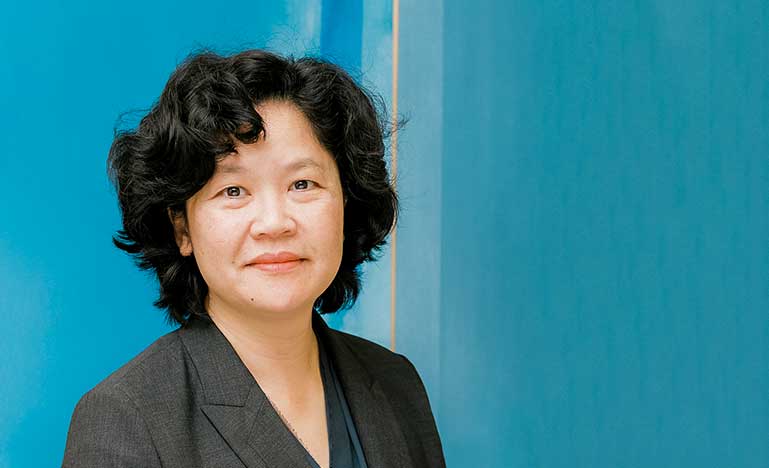Getting ready for prime time
Lawyers take years to develop their expertise. But to meet their full potential, they also need focus on practice management and client management.

Careers in law can develop at different speeds. For some, it can take years to develop skills and expertise before they hit their prime.
For others like Lisa Niro, a commercial and real estate practitioner in Vancouver, it happened early. About three years into her practice, Niro started receiving calls to speak at conferences. “That gave me a lot of confidence that people trusted in my knowledge and my abilities and the information that I had to share,” she says. “My business was building a lot by word of mouth. I was getting more and more files and more and more interesting files.” Niro, now the managing partner at Bell Alliance LLP, adds that many of her early clients have followed her through her career.
Lisa C. Fong, Q.C., a partner with Ng Ariss Fong Lawyers in Vancouver, says that in her experience, legal skills develop in stages.
“Your first stage is figuring out how you manage a law practice — what areas of law you should practice, how you get clients, what cases you should take and what clients you work best with,” she says. Fong, who was called to the bar in 1998, has focused her practice on Indigenous, administrative and professional regulatory law.
After the first five years, many lawyers will start to grow their practices and feel like they’ve hit a new level, says Fong. “In those growth years, that is when you are going to feel like, ‘Oh! I know how to do this,’” she says. “Your colleagues are getting senior enough to give you good referrals, and you’re getting senior enough to do really good work so that people will want to give you referrals.”
Fong says that for her firm and legal practice, it took a decade for the business to reach a desirable place. “Between the 10- and 20-year mark is when we really built our practice because we knew what to do. We had enough clients that were paying us, so we were always financially stable, and we had stable staff too,” she says. “Life is a lot easier now. That is the good news. It gets easier. You get better at it.”
“Now we don’t have to look for new clients. Work creates work,” Fong adds.
Niro recommends that lawyers looking to enter the prime of their careers focus on practice management and client management. “They are so key to your everyday practice of law, and they aren’t [skills] taught in law school,” she says.
Learn to put yourself in your client’s shoes, says Niro. “This could be the most difficult situation that your client has dealt with. [Think] about, ‘what are they concerned about? Where is their anxiety coming from?’ Learning that will help you manage your client through the file.
Ultimately, Niro says, client management is primarily about clear communication.
“Sometimes you need to walk them through the simplest steps and set out clear pathways or processes that help the client understand how things are going to proceed,” she says.
Niro also recommends that lawyers develop a workflow system that helps them manage their practice.
“If you are the sort of person who can’t draft first thing in the morning, develop that schedule that you draft between 4 and 5 p.m. after you’ve got all your calls, emails and appointments out of the way, and you can sit with a clear mind,” she says.
Niro says she draws up a to-do list for the day, prioritizing the most time-sensitive items and crossing off the quick and easy ones first thing in the morning. “If I can get my list of things to do down by half within the first hour or two of the day, then that is fantastic. It puts me in a good position for the rest of the day.”
Looking at the bigger picture, Fong recommends that lawyers also properly consider which areas of practice they are drawn to.
“As human beings, we will always naturally move towards things that are interesting to us. We will do better at the stuff that is interesting to us,” she says. “When you are a new lawyer, you don’t always have the choice. But as you gain more time and experience, you will get that choice. You will get to work towards the work you want to do.”
It’s also essential to develop interests and hobbies outside of the law.
“Practising law is a marathon. It’s not a super sprint,” says Niro. “You have to be able to find that balance in your life because otherwise, you are just going to get burned out.”
Even though she has been practising law for 24 years, Fong says there is still more for her to learn. “Particularly [in] aboriginal law, there is constant learning. Cases get harder. They get longer. There is more evidence, more history,” she says.
As a litigator, Fong says that every case provides her an opportunity to try something new. “It’s always exciting. There is never, ever, a bored moment,” Fong says.
“When I look back at what I was doing a year or two ago, I feel like I have progressed so much from there,” says Niro. “The moment you stop learning is probably the moment you’re out the door to retirement.”


